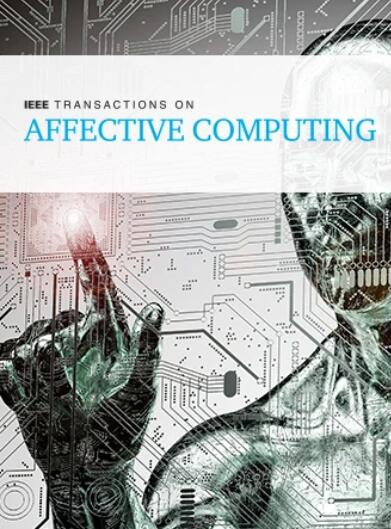抗压力:一种可穿戴设备与实时呼吸反馈压力缓解
IF 9.8
2区 计算机科学
Q1 COMPUTER SCIENCE, ARTIFICIAL INTELLIGENCE
引用次数: 0
摘要
缓解压力对现代人的健康至关重要。深呼吸练习已被证明对缓解压力很有效。然而,深呼吸练习的效果是有限的,如果呼吸模式的反馈不能立即提供。为此,我们提出了一种名为Anti-Stress的可穿戴设备,它可以实时为用户提供呼吸模式,使他们能够根据Anti-Stress指令动态调整呼吸,达到最佳放松状态。此外,Anti-Stress通过测量用户的心率变异性(HRV)为用户提供客观的压力指标。Anti-Stress检测呼吸模式的准确率高达99%,响应时间小于200ms,确保用户能够获得即时指导。为了评估抗应激的有效性,我们招募了60名参与者进行实证实验。ANCOVA分析表明,与未使用抗应激剂的对照组相比,实验组使用抗应激剂显著减轻了应激。此外,包括SUS和QUIS在内的可用性问卷显示,与传统的非生物反馈应用程序相比,Anti-Stress具有更高的可用性。我们的分析还表明,高开放性或神经质人格的人使用Anti-Stress可以更好地缓解压力。本研究结果证明了我们的呼吸反馈机制在帮助用户缓解压力和提高深呼吸练习效果方面的可行性和实用性。本文章由计算机程序翻译,如有差异,请以英文原文为准。
Anti-Stress: A Wearable Device With Real-Time Breathing Feedback for Stress Relief
Relieving stress is crucial for the health of modern individuals. Deep breathing exercises have been shown to be effective for stress relief. However, the effectiveness of deep breathing exercises is limited if feedback on breathing patterns is not provided instantly. For this, we propose a wearable device called Anti-Stress, which can provide users with breathing patterns in real-time, enabling them to dynamically adjust their breathing according to Anti-Stress instructions for optimal relaxation. In addition, Anti-Stress provides users with objective stress indices by measuring the user's heart rate variability (HRV). The accuracy of Anti-Stress in detecting breathing patterns is up to 99%, and its response time is less than 200 ms, ensuring users can receive immediate guidance. To evaluate the effectiveness of Anti-Stress, we recruited 60 participants to conduct an empirical experiment. The ANCOVA analysis shows that the experimental group significantly reduces stress by using Anti-Stress compared to the control group without it. Furthermore, the usability questionnaires including SUS and QUIS demonstrate Anti-Stress's higher usability compared to a traditional non-biofeedback app. Our analysis also reveals that people with high openness or neuroticism personalities had better stress relief by using Anti-Stress. The results of this study demonstrate the feasibility and practicality of our respiratory feedback mechanism in helping users relieve stress and enhancing the effectiveness of deep breathing exercises.
求助全文
通过发布文献求助,成功后即可免费获取论文全文。
去求助
来源期刊

IEEE Transactions on Affective Computing
COMPUTER SCIENCE, ARTIFICIAL INTELLIGENCE-COMPUTER SCIENCE, CYBERNETICS
CiteScore
15.00
自引率
6.20%
发文量
174
期刊介绍:
The IEEE Transactions on Affective Computing is an international and interdisciplinary journal. Its primary goal is to share research findings on the development of systems capable of recognizing, interpreting, and simulating human emotions and related affective phenomena. The journal publishes original research on the underlying principles and theories that explain how and why affective factors shape human-technology interactions. It also focuses on how techniques for sensing and simulating affect can enhance our understanding of human emotions and processes. Additionally, the journal explores the design, implementation, and evaluation of systems that prioritize the consideration of affect in their usability. We also welcome surveys of existing work that provide new perspectives on the historical and future directions of this field.
 求助内容:
求助内容: 应助结果提醒方式:
应助结果提醒方式:


